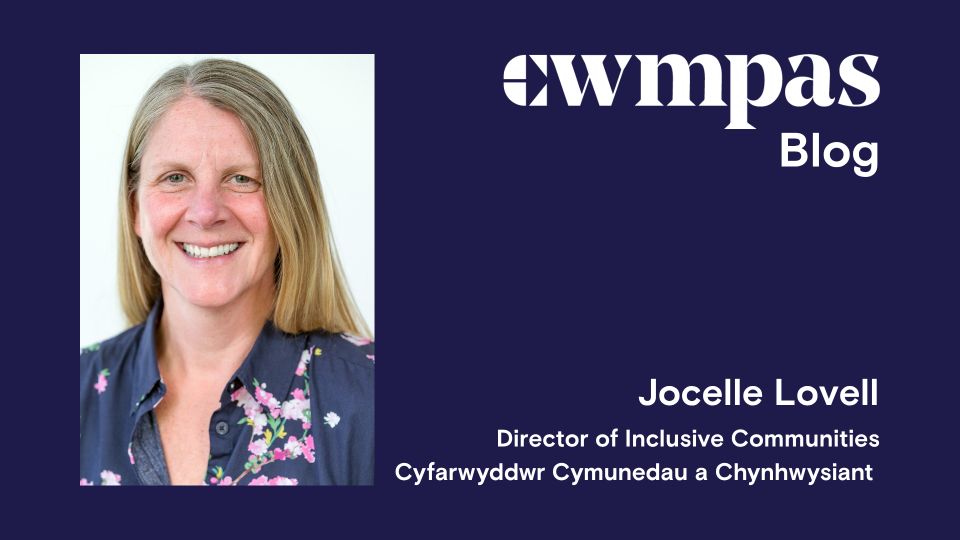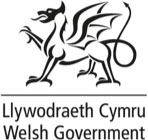
Why Political Parties Must Commit to a Digitally-Inclusive Wales in Their 2026 Senedd Election Manifestos
As political parties are developing their manifestos ahead of next year’s pivotal Senedd elections, it is essential that Wales builds on our momentum on one issue that is fundamental to Wales’ economic and social wellbeing – digital inclusion.
Ensuring everyone in Wales is able to access the internet confidently and securely is pivotal to building inclusive and resilient communities. It enables people to learn, work, manage their finances, access healthcare, participate in their communities, and connect with loved ones. Yet a significant number of people in Wales are still excluded from the benefits of digital technology, either fully or partially. Continued digital exclusion will deepen existing inequalities and create new forms of disadvantage across Wales as technology develops.
All political parties should therefore make a clear commitment to building a truly digitally-inclusive Wales, and they should set out how they will do so in their 2026 manifestos.
A Social and Economic Necessity
From applying for jobs and accessing Universal Credit to booking GP appointments or engaging in education, the digital world is now integral to everyday living. Digital inclusion is a defining factor in whether people can participate fully in modern life.
Despite progress over the past decade, digital exclusion remains a pressing issue. While the percentage of people who are completely offline has fallen considerably – from 39% in 2007 to 4% today – digital exclusion has become more complex, and more closely linked to poverty, health, age, disability, language barriers and geographic inequality. People who may use the internet for some activities may not be able to safely and securely as and when they need to. There are many reasons which could mean someone is digitally-excluded, with the main barriers being identified as cost (of data and devices), motivation, connectivity and skills.
Digital exclusion is both a cause and a consequence of inequality. Those most likely to be digitally excluded are the same groups most likely to face socio-economic disadvantage and wider challenges to accessing services. Without a clear, long-term commitment to digital inclusion, the benefits of digital transformation could be lost, and risk leaving many of these people even further behind.
Wales Has Momentum – But It Must Be Sustained
Wales has a strong track record of leadership in digital inclusion. Over the last 10 years, the Welsh Government, public bodies and the third sector have made this agenda a priority and developed effective partnership models, making a real difference to people’s lives. Cwmpas has played a central role in this progress, delivering national programmes and helping organisations, communities and public services to build digital inclusion into their work since 2007.
This year, the Welsh Government has appointed Cwmpas to deliver Digital Inclusion Wales, a new £7 million national programme to run for three years, with the potential to extend to six. This programme will map digital inclusion provision across Wales, deliver bilingual advice and support, build regional and thematic networks, develop resources, and foster collaboration across public, private and third sectors.
The next Senedd term must ensure sustained investment and systemic change so that digital inclusion becomes a permanent and embedded feature of how Wales designs and delivers public services. Digital exclusion will never be completely solved – as technology develops and our communities change, people can move from confidence to exclusion – the recent surge in the use of artificial intelligence demonstrates this.
Ensuring we prioritise digital inclusion and design services effectively is everyone’s responsibility – and the next Welsh Government will have a clear leadership role.
Cwmpas has to key asks of political parties writing their manifestos; the expansion of the Minimum Digital Living Standard and embedding inclusion in transformation.
The Minimum Digital Living Standard: A Foundation for Progress
One of Wales’ most promising developments in this space is the Minimum Digital Living Standard (MDLS). The MDLS defines the minimum digital requirements for full participation in society and serves as a framework for achieving universal digital inclusion. The Welsh Government continues to work with the University of Liverpool, Cwmpas, Loughborough University and the Good Things Foundation to expand and refine this standard, starting with a definition and standard for households with children. Political parties should now commit to expanding the MDLS so that it applies to all household types across Wales, providing a common benchmark for progress, helping Wales move towards a fair and consistent standard of digital inclusion for everyone.
We are seeing the difference the MDLS can make when it is understood and used as an implementation tool. The Welsh Government has expanded MDLS grants to social housing providers following successful pilots with Monmouthshire and North Wales Housing Associations. Supported by our Digital Communities Wales project, the pilots helped residents build essential digital skills, develop confidence in online safety, and use digital tools to enhance their wellbeing. Workshops demonstrated tangible benefits: at North Wales Housing Association, residents learned how to spot online scams and even took virtual tours of meaningful places from their past, supporting digital confidence and emotional connection.
Digital Transformation Must Embed Inclusion at Its Core
Across Wales, public services are undergoing digital transformation. This brings opportunities for improved efficiency, more streamlined services and better outcomes for citizens. However, digital transformation that is not inclusive risks creating barriers rather than removing them.
Too often, digital transformation projects focus primarily on technology, systems and cost-efficiencies, and only consider digital inclusion as an afterthought. This leads to services that are technically improved but not accessible for everyone. If people cannot access or use digital services, or do not have confidence in them, then transformation fails to achieve its purpose.
To prevent this, digital inclusion must be built into the design and funding of all public sector digital transformation programmes. Cwmpas is calling for a commitment that all digital transformation projects allocate a percentage of their budget specifically for digital inclusion. This would support skills, training, outreach, assisted-digital support, accessible design, and tailored community-based interventions. Designing inclusion in from the start is cost-effective, reduces pressure on frontline services, and ensures all citizens benefit equally.
Why This Must Feature in 2026 Manifestos
Being a digitally-inclusive nation strengthens Wales socially and economically. Including a clear commitment to digital inclusion within 2026 manifestos would:
- be essential to policies seeking to combat poverty and build community cohesion
- improve access to healthcare, education and employment
- reduce pressure on public services
- support a more productive and innovative economy
- help tackle loneliness and social isolation
What Political Parties Should Commit To
To make digital inclusion a reality for all, political parties should commit to:
- Expanding the Minimum Digital Living Standard to all household types across Wales
- Requiring all public sector digital transformation projects to allocate a percentage of their budget to digital inclusion
- Continuing long-term investment in national and local digital inclusion infrastructure
A Cross-Party Opportunity for Wales’ Future
Digital inclusion is fundamental requirement for a fair, modern and connected Wales. By committing to digital inclusion in their 2026 manifestos, political parties have an opportunity to build a Wales where everyone can participate and thrive, and help to ensure that digital transformation and technological development improves lives, strengthens communities and delivers a fairer future for all.









